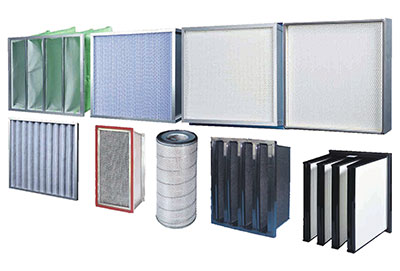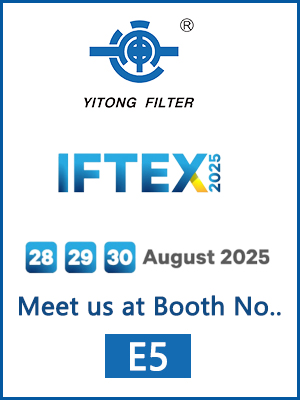 September 20, 2024
September 20, 2024
Maintaining indoor air quality is crucial for creating a healthy and comfortable living environment. Ventilation systems play a significant role in this by circulating fresh air and removing stale air from indoor spaces. A key component of these systems is the ventialtion system filter, which captures dust, allergens, and other airborne particles, ensuring that the air we breathe is clean and safe.

Ventilation system air filters are essential elements of HVAC systems designed to trap and remove contaminants from the air. They work by allowing air to pass through while capturing particles, thus improving air quality and reducing the presence of contaminants. These filters also protect the HVAC system from damage by preventing dust buildup on sensitive components.
Fiberglass Filters: These are the most basic and economical option, primarily used to trap larger particles such as dust. They are not very effective against smaller particles but are a good choice for general use in homes with no specific air quality concerns.
Pleated Filters: Pleated filters have a larger surface area, which makes them more efficient at capturing smaller particles than fiberglass filters. They are a popular choice for homes with pets or for those looking to improve overall air quality.
HEPA Filters (High-Efficiency Particulate Air): Known for their exceptional filtration capabilities, HEPA filters can capture 99.97% of particles, including allergens, mold, and bacteria. They are ideal for people with allergies or respiratory issues.
Electrostatic Filters: These filters use static electricity to trap particles and are often reusable, making them a cost-effective option in the long run. They are effective against a wide range of particle sizes and can be a good choice for those looking to minimize waste.
Carbon Filters: Carbon filters are excellent at removing odors, smoke, and gases from the air. They are particularly useful in homes with pets or smokers, or for those who live in areas with high levels of outdoor pollution.
Improved Air Quality: By reducing the number of allergens, pollutants, and odors, filters contribute to a healthier living environment.
Prolonged System Lifespan: Regularly replacing filters prevents dust buildup, which can cause wear and tear on the HVAC system, extending its lifespan.
Energy Efficiency: A clean filter allows for better airflow, which helps the HVAC system work more efficiently, potentially reducing energy bills.
Health Benefits: Cleaner air can lead to fewer respiratory issues, allergies, and other health concerns, promoting overall well-being.
MERV Rating: The Minimum Efficiency Reporting Value (MERV) rating indicates a filter's ability to capture particles. A higher MERV rating means better filtration.
Filter Size: It's crucial to choose the correct size for your ventilation system to ensure proper airflow and effectiveness.
Specific Needs: Consider factors such as allergies, pets, or smokers in the home when selecting a filter. For example, those with allergies might opt for HEPA filters.
- How often should I replace my ventilation system filter?
Most filters should be replaced every 1-3 months, depending on the type and the environment.
- Can I wash and reuse filters?
Only specific types, like electrostatic filters, are washable. Others, such as fiberglass or HEPA filters, should be replaced.
- What happens if I don’t change my filter regularly?
Dirty filters can cause poor airflow, increased energy consumption, and even damage to the HVAC system.
- What is the best filter for people with allergies?
HEPA filters or high MERV-rated filters are best for capturing allergens.
- How do I know if my filter needs replacing?
Signs include increased dust in your home, reduced airflow, and a noticeable decrease in air quality.
- Do filters remove odors from the air?
Carbon filters are best for removing odors from smoke, cooking, or pets.
- Can I use a high MERV filter in any system?
Some systems may not handle high MERV filters well due to reduced airflow, so always check your system's specifications.
Regularly check the filters and replace them as needed.
Schedule annual HVAC inspections to ensure the system is running efficiently.
Keep the surrounding areas of the system clean to reduce the amount of dirt and debris entering the filters.
Conclusion:
Choosing the right ventilation system filter is essential for maintaining clean air and ensuring your HVAC system operates efficiently. Regular maintenance and filter replacement are key to enjoying the health benefits and optimal performance of your ventilation system.

